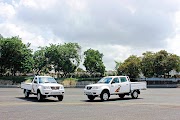Introduction
Water management in a motorhome is a crucial aspect of ensuring a comfortable and sustainable travel experience. Unlike traditional homes, motorhomes have limited space and resources, making efficient water usage essential for extended journeys. From sourcing water to wastewater disposal, every step requires careful planning to make the most of available resources.
Finding Clean Water
The primary consideration of water management in a motorhome is sourcing clean water. Many motorhomes come equipped with onboard water tanks, the capacity is limited, and replenishing water on the road requires strategic planning. Travelers often rely on designated water fill-up stations, campgrounds, or even natural water sources.
It's essential to research and plan routes that have reliable water sources along the way, ensuring a steady supply for cooking, drinking, and other daily needs.
Water Saving Habits
Once water is onboard, conservation becomes paramount. Water Management in a motorhome also requires water-saving habits similar to those practiced in eco-conscious homes. Low-flow faucets and showerheads, as well as water-efficient appliances, can significantly reduce water consumption.
Additionally, While doing water management in a motorhome travellers can capture and store rainwater for non-potable uses, such as cleaning or flushing toilets, further stretching their water supply.
Tracking Water Level In Tank
Monitoring water levels becomes a routine task for motorhome enthusiasts. Keeping track of the freshwater tank's capacity helps avoid unexpected shortages. Many modern motorhomes come equipped with monitoring systems that display water levels, allowing occupants to plan their usage accordingly. Conservation is not just about reducing consumption but also about being aware of the available resources to prevent unexpected challenges on the road.
Waste Water Managment
Wastewater management is another critical aspect of the motorhome water equation. Gray water, generated from activities like washing dishes and showering, can often be disposed of in designated areas at campgrounds or through appropriate wastewater dumping stations.
However, the disposal of black water, containing human waste from the toilet, requires more careful consideration. Motorhomes are equipped with holding tanks for black water, and emptying them is typically done at designated dump stations.
Properly managing black water is not only essential for the environment but also for the well-being of fellow travelers and the reputation of the RV community.
Maintenance Of Motorhome
In addition to conscious water usage, regular maintenance of the motorhome's water system is essential. This includes inspecting and cleaning water tanks, checking for leaks, and ensuring the proper functioning of pumps and valves. Neglecting maintenance can lead to water contamination, system failures, and costly repairs.
Using Tech For Water Management
Technology plays a significant role of water managementin a motorhome. Advanced water filtration systems can enhance the quality of onboard water, making it safe for consumption. Smart water meters and monitoring apps allow travelers to track their water usage in real-time, helping them make informed decisions about conservation.
Conclusion
Ultimately, effective water management in a motorhome is a combination of mindful practices, technological innovations, and regular maintenance. By adopting water-saving habits, planning routes with accessible water sources, and leveraging technology, motorhome enthusiasts can enjoy the freedom of the open road without compromising their water supply or the environment. In the world of motorhome travel, where resources are limited, responsible water management is key to a sustainable and enjoyable journey.



.png)






0 Comments
Please Do Not Spam In The Comment Box!